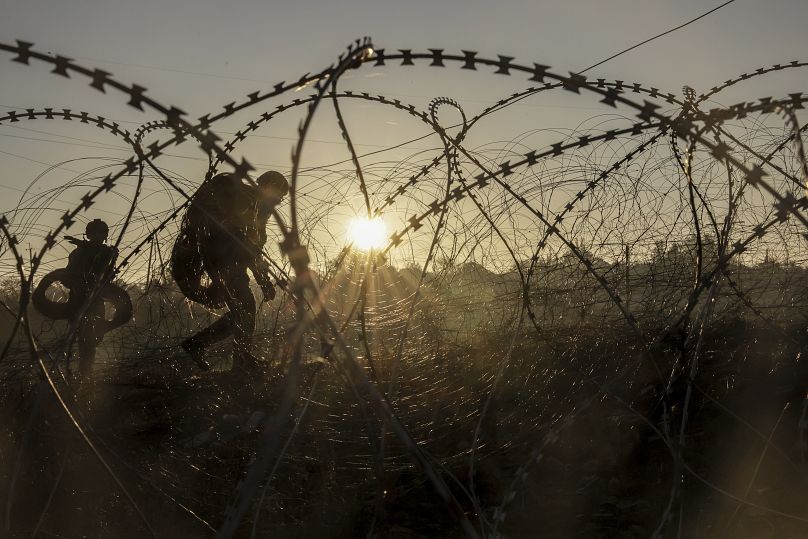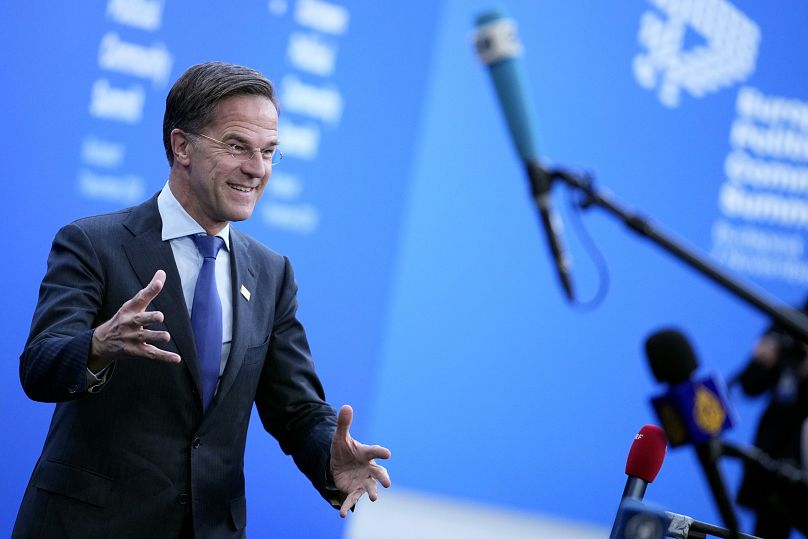The International Institute for Strategic Studies report says while defence spending is up, progress has been mixed and a lot still needs to be done to effectively counter threats from countries like Russia.
European nations have boosted their defences in response to the annexation of the Crimean Peninsula in 2014 and Russia’s invasion of Ukraine, a London-based think tank has said.
 ADVERTISEMENT
ADVERTISEMENT
 ADVERTISEMENT
ADVERTISEMENT
But a report released by the International Institute for Strategic Studies says much remains to be done before European countries are fully ready to face down further threats from Russia.
"NATO has not just significantly increased its ambitions regarding its deterrence and war-fighting posture, but European members have sought to address critical capability and readiness shortfalls," part of the report, released at the start of a three-day gathering in Prague to discuss European and transatlantic military capabilities, said.
"Unsurprisingly, however, after decades of neglect and underinvestment, much remains to be done and progress has been mixed."
The assessment was released as European leaders, including NATO Secretary General Mark Rutte, were rethinking their trans-Atlantic relations in Budapest, in the hope that Donald Trump's second presidency will avoid the strife of his first administration and maintain a strong common stance on Russia.
Ben Schreer, the executive director of IISS-Europe, said that European defence is "at the most critical time" now.
"The US election will add even more pressure on European nations to invest more in their own defences but at the same time considering how to continue to help Ukraine win this war," he said.
During his election campaign, Trump threatened actions that could have ground-breaking consequences for nations across Europe, from a trade war with the EU to a withdrawal of NATO commitments and a fundamental shift of support for Ukraine in its war with Russia.
During his first term in the White House from 2017-2021, Trump pushed NATO's European members to spend more on defence, up to and beyond 2% of GDP and to be less reliant on US military cover.
In that respect, some progress has been made, with 2024 defence spending by NATO's European member states 50% higher than it was 10 years ago, the report said.
But, the IISS said, problems remain, citing a lack of stability in public financing that "ultimately limits (the defence) industry's ability to invest with confidence."
Moreover, "regulatory hurdles and application of environmental, social and governance standards will continue to act as barriers to investment," it said.
Europe's defence industry managed to increase output of some products after 2022, especially those with high demand from Ukraine, such as air defence and artillery.
But European countries also donated their own weapons to Ukraine, including F-16 fighter jets, and "remain dependent on the US for some important aspects of their military capability," looking also to Brazil, Israel and South Korea to meet their needs due to a lack of their production capacity.
Competition with civilian industries for raw materials and skilled professionals makes things harder for the defence industry, the report said.
It also warned that many European armies don't have enough military personnel.
A lesson learned from Russia's war against Ukraine is, "that countries need significant troops to engage with and defeat enemy attack, but also enough forces to regenerate after combat attrition."
By that standard, "key European armed forces remain under-strength."
Europeans have a long way to go to renovate their defence capabilities, the report said.
"Forces, budgets and defence-industrial capacities were reduced because of political decisions by governments. These same governments now need to rediscover the ‘muscle memory’ of defence and security, ensuring sustained policy attention and investment to meet the new strategic realities in Europe."












